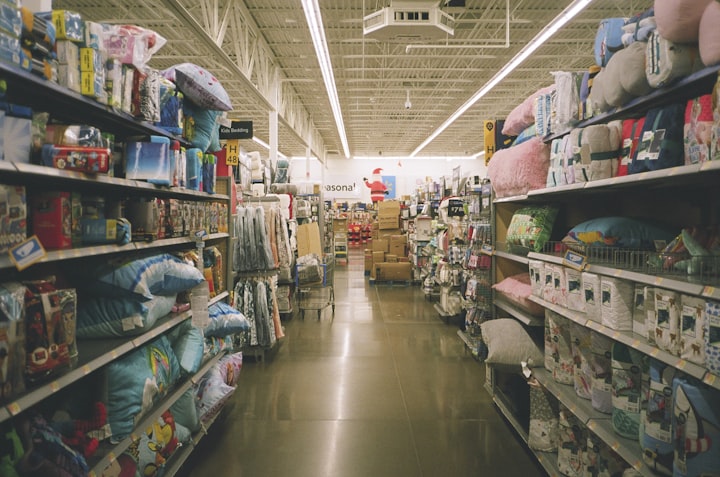This Earth Day, Consider Natural Cleaning Products
Study by EWG Reveals Many Common Household Cleaners are a Problem for the Environment

Many of us turn to the products lining the shelves of our local Walmart or Target in our quest for a clean home but recent studies and environmental concerns have shed light on the dark side of these conventional cleaning solutions.
A study by the Environmental Working Group (EWG) has unveiled the alarming reality that common household cleaning products, including those labeled "green," can emit hundreds of volatile organic compounds (VOCs). Of these VOCs, 193 were identified as hazardous, posing potential health risks such as respiratory system damage, increased cancer risk, and developmental impacts.
Notably, VOCs are more concentrated indoors, contaminating the air you breathe in your daily life around the house.
This report underscores the importance of opting for green, fragrance-free products to minimize exposure to these harmful chemicals, more natural and environmentally-responsible options.
This need served as the inspiration for Earthworm Cleaning Products, a New Jersey-based company which seeks to eliminate caustic cleaning products from under your sink. Inspired by the natural process through which earthworms recycle waste, Earthworm offers products that leverage the power of enzymes to create safer, effective, and environmentally preferable cleaning solutions.
Natural enzymes mimic the earthworm's ability to break down organic material, offering a potent and safer alternative to the harsh chemicals found in many popular cleaners. The company has leveraged this approach with a wide range of products, most notable with its natural drain de-clogger.
Contrast that with Drain-O and other popular cleaning products, which pose environmental challenges due to their chemical composition. These products often contain harsh substances like sodium hydroxide and sodium hypochlorite, which are effective at dissolving clogs but can also cause ecological harm.
When chemicals from these offenders enter waterways, they can drastically alter the pH balance and degrade water quality, potentially harming aquatic life. Additionally, the production of these cleaners involves energy-intensive processes and generates pollution.
As we approach Earth Day, it’s a good time to take a moment to consider the products we use each day and consider this eco-friendly alternative.
This is a shift that is long overdue: in 1962, biologist Rachel Carson published Silent Spring, a book focusing on the effects of pesticides that many credit for launching the modern environemntal movement. In 1969, the Santa Barbara oil spill occurred and the National Environmental Policy Act passed that same year.
The involvement of the government and a regulatory authority that paid mind to environmental concerns was a great step forward in the big-picture, but these agencies primarily focused on the big-picture items. The full extent of government involvement in individual-level green products was increasing the number of certifications and labels that people have come to trust so they can choose products that align with their values. And while that's certainly important, it did little to grow the availability of these products: if anything, it served as a barrier to entry for eager entrepreneurs.
Slowly but surely, throughout the 1970s and 80s, many of the most environmentally-conscious brands we've come to know and love overcame those barriesr to entry and became available, including Tom's of Maine and Seventh Generation.
But for some reason, home cleaning products lagged behind for decades.
In recent years, especially as Millennials and other young champions of the Earth have become home-owners, demand for Earth-friendly cleaning products has been on the rise for a range of use-cases that extends well beyond laundry detergent and toothpaste, as people seek eco solutions for their carpets, bathroom mold and mildew, kitchen disposals, pet stains, septic systems, and even their RV septic tanks. That's where Earthworm and their enzyme-based solutions step in.
Earthworm and those like it offer to serve the larger movement towards sustainability and a healthier planet, but also serve the need for a healthier home as we try to eliminate harmful chemicals.
About the Creator
Sian Keating
I'm a creative media marketer, a Philadelphia sports fan, and an avid skier. My personal website is: https://siankeating.com/






Comments
There are no comments for this story
Be the first to respond and start the conversation.